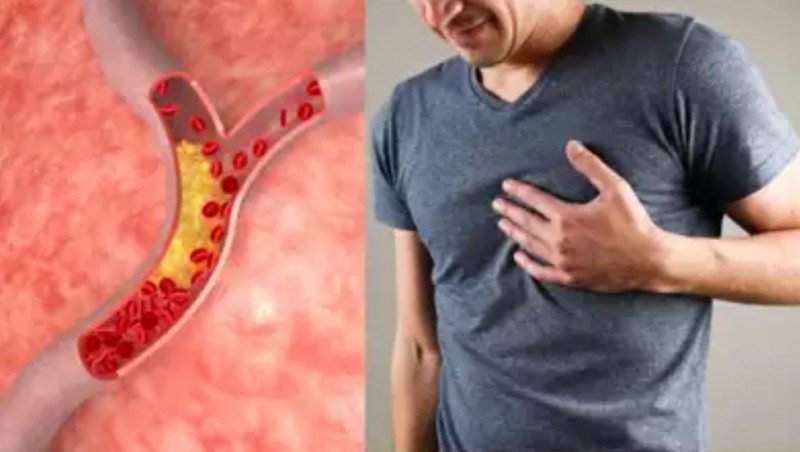
High cholesterol levels pose significant health risks, primarily by increasing the likelihood of heart disease and stroke. Cholesterol, a waxy substance found in the blood, is essential for building healthy cells. However, excessive levels can lead to plaque buildup in the arteries, restricting blood flow and potentially causing cardiovascular complications.
Mechanism of Cholesterol Accumulation
When high-fat foods are consumed, they release fat particles and triglycerides into the bloodstream. Over time, these particles can adhere to the arterial walls, initiating a process where cholesterol particles accumulate and form plaque. This accumulation narrows the arteries, reducing the space through which blood can flow. As a result, the heart must pump harder to circulate blood, leading to increased blood pressure.
Role of Low-Fat Diet and Chia Seeds
A diet low in saturated fats is crucial for managing cholesterol levels. Additionally, incorporating foods rich in soluble fiber, such as chia seeds, can significantly aid in this process. Chia seeds are renowned for their high fiber content, which helps in cleaning out cholesterol deposits from the arteries. The soluble fiber in chia seeds forms a gel-like substance in the digestive system, which binds to cholesterol and prevents its absorption into the bloodstream. Subsequently, when this gel-like substance is eliminated from the body, it takes the trapped cholesterol particles with it, thereby reducing overall cholesterol levels.
Scientific Insights into Chia Seeds
Chia seeds are particularly unique due to their ability to form a gelatinous compound when exposed to water. This compound not only aids in cholesterol reduction but also improves digestion and regulates bowel movements. For those managing high cholesterol, soaking chia seeds in water overnight and consuming them in the morning can be an effective strategy. This practice allows the seeds to expand and release their beneficial nutrients, including omega-3 fatty acids and antioxidants, which further support cardiovascular health.
Benefits Beyond Cholesterol Control
Beyond cholesterol management, chia seeds offer additional health benefits. Their high omega-3 content contributes to reducing inflammation in the body, which is beneficial for overall heart health. Moreover, the fiber in chia seeds supports weight management by promoting a feeling of fullness and stabilizing blood sugar levels. This makes them a valuable addition to diets aimed at reducing obesity and improving metabolic health.
Practical Tips for Incorporation
Incorporating chia seeds into daily meals is simple and versatile. They can be added to breakfast cereals, smoothies, salads, or used as a thickening agent in baking. For optimal cholesterol-lowering effects, consume soaked chia seeds regularly, ideally three to four times a week. This routine helps maintain consistent fiber intake and supports long-term cardiovascular health goals.
In conclusion, chia seeds are a natural and effective dietary supplement for managing high cholesterol levels and promoting heart health. Their ability to reduce cholesterol buildup in arteries, coupled with their overall nutritional benefits, makes them a valuable addition to any balanced diet. By integrating chia seeds into daily nutrition plans, individuals can take proactive steps towards maintaining healthy cholesterol levels and reducing the risk of cardiovascular diseases.
Beat the Heat with Delicious and Healthy Kulfi at Home!
Should You Wear a Bra to Bed? Experts Weigh In on the Potential Risks